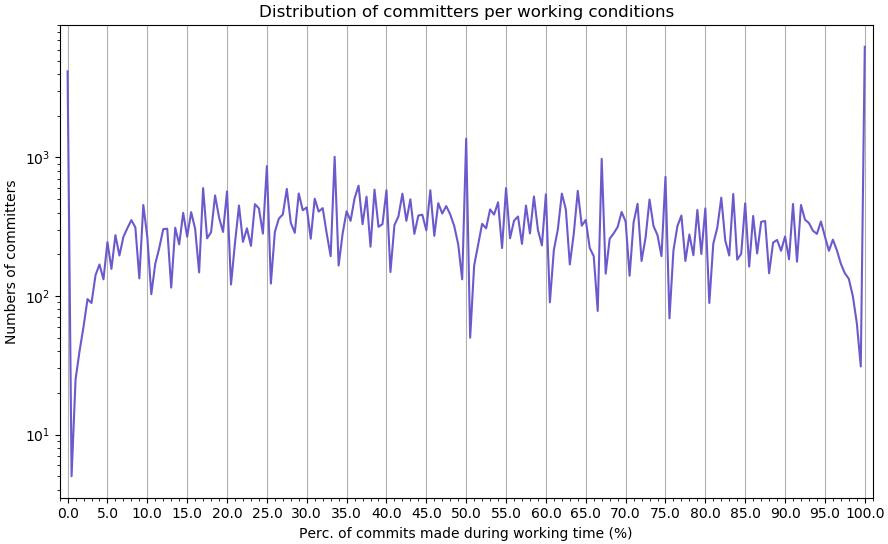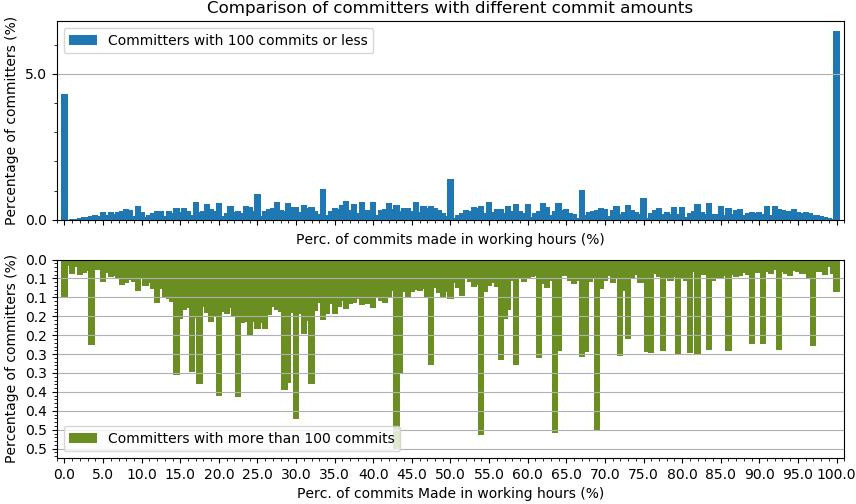We just finished redoing our original analysis of paid vs. volunteer work in open source for Gitee, a Chinese-dominated code hosting platform from China. We wanted to understand where China stands in open source. The previous blog post explained the half / half split between paid vs. volunteer time in terms of total work on open source.
So far, we only discussed commits, now I would like to discuss committer behavior, in particular, whether there are pure paid developers, who only work Mon-Fri, 9am-5pm, i.e. during regular working hours, and pure volunteers, working only outside those hours. Compared to our data for the Western world, the Chinese data is less conclusive. The following figure bins developers into the respective categories, and the following table spells out the bins (categories) explicitly. For the figure, please note the logarithmic scale of the y-axis.

| Type of Developer | Volunteer | Mixed | Paid | ||
|---|---|---|---|---|---|
| % Commits in Working Hours | 0% | 0.01% – 5% | 5.01% – 94.99% | 95% – 99.99% | 100% |
| % of Developers | 5.6% | 1.0% | 82.22% | 1.7% | 8.5% |
For the Western world, we had found a much more pronounced category of paid or volunteer work only. In particular, for the Linux kernel, as our example of a project of high commercial relevance, we have found that more than 30% of paid developers contributed only during regular working hours, not providing a single commit outside.
In China, once we look at regularly contributing developers with at least 100 commits, it gets even murkier, and we find that those contributing substantial numbers of commits during working hours cannot be confined to these any longer. They also contribute outside the regular working hour window. The following figure displays this.

It is up to everyone’s guess whether this implies more enthusiasm or less professionalism or something else.
Next up: Paid vs. Volunteer Open Source Work in China (Projects)
Data and figures were taken from Weixin Wang’s Master thesis, which is licensed under the Creative Commons BY 4.0 international license. I would like to thank my student for his work.









Leave a Reply